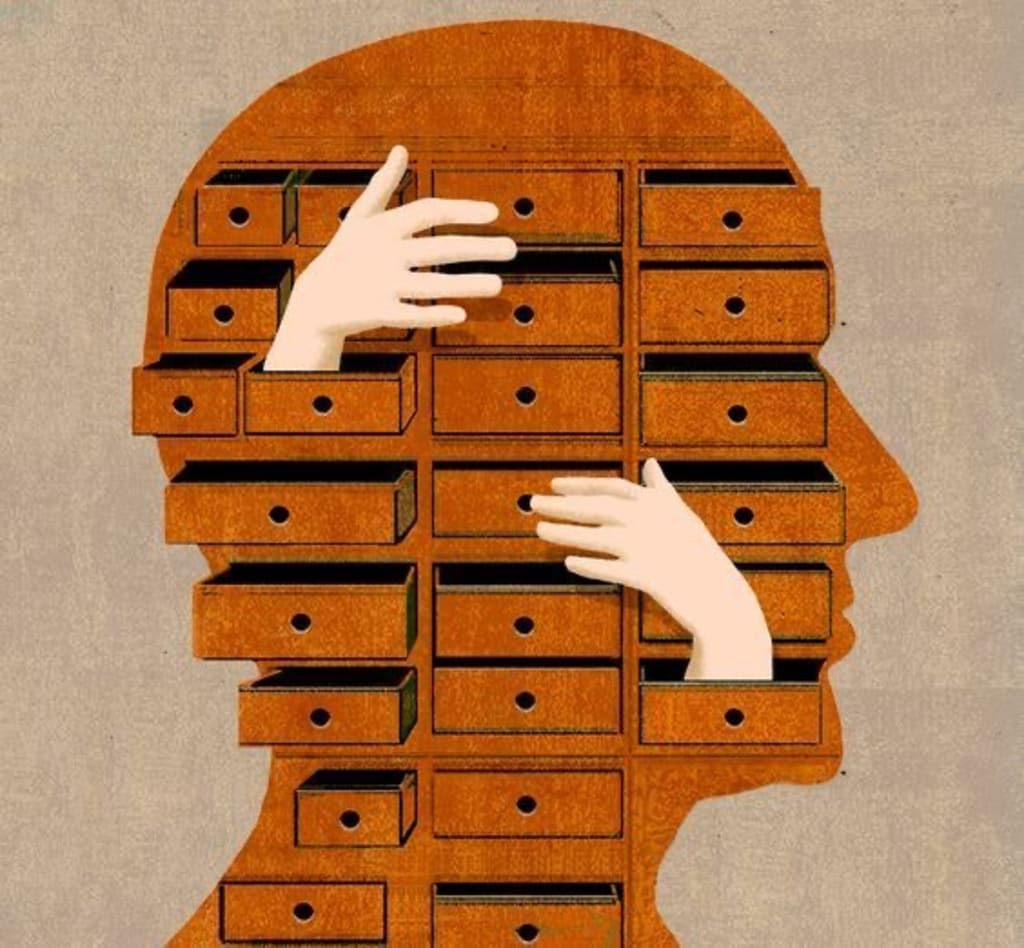Did it really happen?
How memories work

Charlie stands on a stage receiving an Oscar for best film director in front of a crowd of a few thousand people. He is filled with nerves and pride, looking out at the cheering crowd. As the cheers fade, he begins to thank his mother, father, wife Maria, and daughter Emily for their support and inspiration in his life.
Charlie pauses, feeling flustered by the pressure to remember everything he wants to say. He quickly recovers and continues, thanking the entire cast and crew for bringing the film to life. He acknowledges that he couldn't have done it without each and every one of them. Lastly, he thanks his longtime collaborator and best friend John, reminiscing about their early days of making films together.
John sits at the front of the crowd, smiling and laughing. He points his finger at Charlie in a friendly gesture. Charlie recounts how this moment changed his life, expressing gratitude for living out a childhood dream. Charlie thanks the crowd, holding up his award with a cheerful shake. The audience applauds, unaware that Charlie had deceived them and the viewers watching the ceremony.
It wasn’t that he was trying to enhance his speech or conceal anything in his story. When he said, "if I remember correctly," he genuinely didn’t recall the specific day that Charlie mentioned in his speech. The day Charlie credited with sparking his interest in filmmaking and his childhood dream was actually Friday, May 21, 1988.
When Charlie and John were 10 years old, they embarked on their first short film project using John's father's VHS camcorder. Charlie took on the roles of filming and directing, while John acted out an adventure through the neighborhood. They pretended to race against time to rescue a girl captured by some indiscriminate villains they had cast. John's younger sister played the girl, and John's parents improvised as the villains, creating lines and scenes on the spot. Once filming was complete, John and Charlie edited everything on the VHS player, adding glitch effects, cuts, music, and more. When they premiered the film to John's family, they received genuine praise. John's parents and older brother were truly impressed—not just offering the usual obligatory compliments. They admired how comfortable John was on camera and how Charlie showed a natural talent for cinematic timing, angles, emotion, and scene blocking, all at just 10 years old. However, there was one catch: it wasn’t Charlie. On the day the film was made, Charlie was at home with his parents. It was actually John's other friend, Steven, who collaborated with John on the film.
Charlie had nothing to do with it. However, four years later, on the night before starting high school, John and Charlie were hanging out at Charlie's house. As friends often do before and after major life transitions, they reminisced about their memories from elementary and middle school.
Charlie and John were best friends and spent more time together than with anyone else. This close bond led John to mistakenly mix up Charlie with Steven when recalling his memory of making the film. When this mixed-up memory surfaced in John's mind, he blurted out, "Hey, do you remember when we made that short film together?"
Charlie didn’t remember at first but considered that he might have simply forgotten about it. It sounded plausible enough. He paused for a moment and then said, "I think so, but I’m not sure if I remember. When was it?"
John, surprised that Charlie had forgotten, exclaimed, "It was like four or five years ago, I think. Maybe in 6th grade? It was with my sister, and we had this whole plot. It was kind of stupid but also pretty cool."
John reminded Charlie how good he was at filming and directing, and how impressed his parents and siblings were with the film. He told Charlie how he remembered him being a natural at the whole thing. As John kept talking, Charlie drew a picture inside his head of how it had looked when they did the project. And all those compliments made Charlie want the memory to be real, and he began convincing himself that he had just forgotten about it. John seemed so sure, and Charlie trusted him. "Oh yeah, I remember now," Charlie exclaimed back to John.
Charlie was still a bit unsure when he said he remembered making the film, but a clear memory began to form in his mind, making him believe it was real. In that moment, an entirely false memory was planted in Charlie's brain.
This phenomenon is fairly common and happens to many people daily. Memories can be fabricated or altered, replacing or modifying what really happened. Psychologists refer to this as confabulation or false memory, caused by factors like memory conformity, suggestibility, source misattribution, or the misinformation effect. Generally, influences such as social pressure, personal desire, misjudgment, or emotional circumstances create errors in memory retrieval, resulting in modified or false memories being implanted in the brain.
In 1995, a study revealed that when participants were asked to recall specific childhood memories provided by their parents, if three out of four memories were real but one was fabricated, about 25% believed the false memory was real and described it vividly. The suggested memory was of getting lost in a shopping mall and being rescued by an elderly lady. Subsequent studies with more unusual memories, like almost drowning or witnessing satanic possessions, found that 33-50% of participants recalled these false memories as real. False memories are especially easy to implant when the information comes from a trusted source. Because John was Charlie's best friend, Charlie was naturally susceptible.
Generally, these situations are benign and don’t change much. However, as Charlie and John began high school, the seed of Charlie's false memory sprouted, igniting Charlie's interest in film production. Charlie started creating film projects, joined the school's TV station and film club, and got involved with the town's local TV network. Believing he was already good at filming and directing gave Charlie the confidence to take on lead roles, face challenges, and take creative risks. Charlie excelled in high-pressure roles, trusting his intuition. He soon began working as a freelance filmmaker, producing videos for local companies and clients. Charlie's talent shone, and his clients were highly satisfied with his work.
In college, Charlie and John studied film together and collaborated on several projects, with Charlie directing and John helping write and act. Two of their projects won multiple awards at various film festivals. To support himself, Charlie also directed music videos for friends. One music video, featuring an artist rising to mainstream success, gained significant attention and propelled Charlie's career forward. As Charlie's reputation in the music video world grew, he wrote screenplays and pitches for feature films, determined to achieve his childhood dream of becoming a feature film director.
In 2004, Charlie's debut feature film, *Delusions of Grandeur*, starring John, was released. It won an Independent Spirit Award for Best Original Screenplay, establishing Charlie in Hollywood. Fifteen years later, Charlie walked off the Dolby Theatre stage, holding an Oscar for Best Director. During the drive home from the awards ceremony, surrounded by his wife, parents, John, and friends, Charlie's wife asked, "Did you ever think you'd be leaving the Dolby Theatre in a limo with an Oscar?"
Charlie smiled at her, glanced at John, and said, "I can't say I ever knew for sure, but I think you're only as capable as you believe you are. Some people aren't nearly as capable as they think, some are far more, and some are exactly right. You can only find out by following it to the end. I guess I'm one of the lucky ones who was just right." The group marveled at Charlie's profound answer, unaware of the irony that his success was founded on a false memory. Fortunately for Charlie, he was right that sometimes, you become capable simply because you believe you are.





Comments
There are no comments for this story
Be the first to respond and start the conversation.